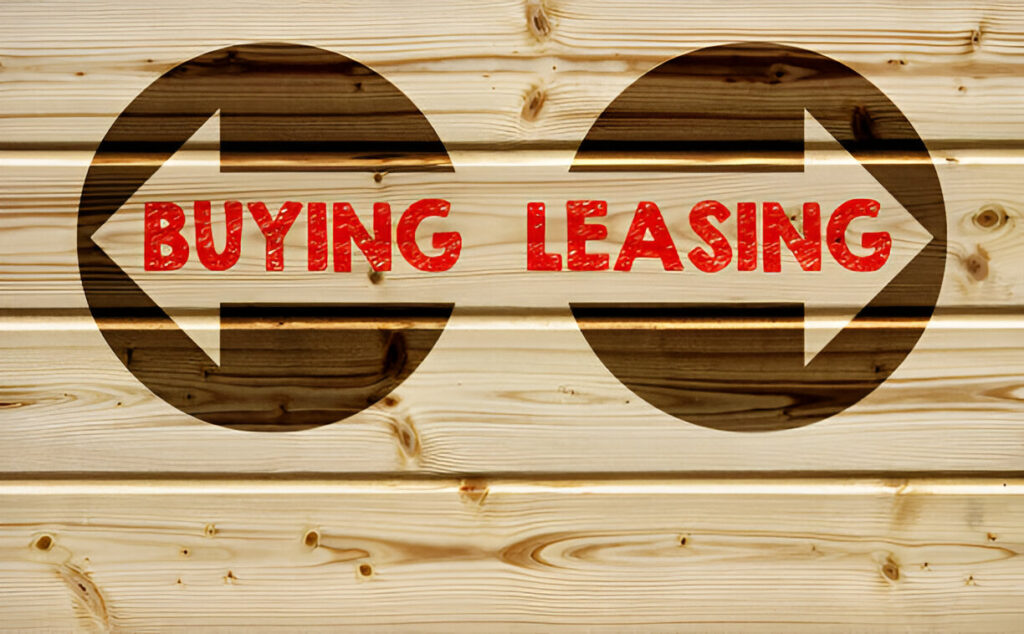Choosing between buying and leasing office space is a critical decision for business owners. Both options come with their own set of advantages and drawbacks, impacting your business’s financial flexibility, growth potential, and operational costs. In this article, we’ll explore the pros and cons of buying and leasing office space to help you make an informed decision.
Buying Office Space
Pros:
- Equity Building
When you buy office space, your payments contribute to building equity, turning a significant business expense into a long-term investment. Over time, as property values appreciate, you could sell the property for a profit or use the equity to finance business expansion. - Fixed Costs
A fixed-rate mortgage ensures that your monthly payments remain predictable, making it easier to manage long-term budgeting. Unlike leasing, you won’t face periodic rent hikes imposed by landlords. - Tax Benefits
Property owners can deduct mortgage interest, property taxes, and depreciation from their taxable income. These deductions can significantly reduce your tax burden. - Complete Control
Ownership allows you to renovate and customize the space to suit your brand without seeking landlord approval. This flexibility can enhance your business’s image and operational efficiency. - Rental Income Potential
If you purchase more space than you need, renting out extra units can create an additional revenue stream, offsetting mortgage costs.
Cons:
- High Upfront Costs
Buying requires a significant down payment (typically 10-25% of the property value) plus closing costs, which can strain your capital reserves. - Maintenance Responsibilities
Ownership comes with ongoing maintenance costs and responsibilities, from roof repairs to landscaping, which can be unpredictable and costly. - Limited Flexibility
Owning property can limit your ability to relocate quickly in response to market changes or business growth. Selling commercial property can take time, making it challenging to adapt rapidly. - Market Risk
Real estate values can fluctuate, and a downturn could leave you with negative equity. If property values decrease, you could struggle to sell or refinance. - Opportunity Cost
The capital tied up in real estate could otherwise be invested in business growth, such as hiring, marketing, or new equipment.
Leasing Office Space
Pros:
- Lower Initial Costs
Leasing requires less upfront capital than buying, as you only need to cover a security deposit and a few months’ rent. This frees up cash for operational expenses and growth initiatives. - Greater Flexibility
Leasing offers the flexibility to relocate as your business grows or market conditions change. Short-term leases allow you to adjust your space needs more frequently. - Maintenance-Free
Most commercial leases include maintenance and repair services, shifting the responsibility and cost to the landlord. This predictability makes budgeting easier. - Tax Deductibility
Lease payments are typically tax-deductible as a business expense, providing a straightforward way to reduce your taxable income. - Access to Premium Locations
Leasing makes it easier to secure office space in prime business districts that might be too costly to purchase. A prestigious address can enhance your brand’s credibility.
Cons:
- No Equity or Investment Return
Lease payments do not build equity, meaning all the money spent on rent is gone once your lease ends. This is a significant downside compared to the potential appreciation of owned property. - Uncertain Rent Increases
Many leases include annual rent escalations or adjustments based on market rates, leading to unpredictable cost increases over time. - Limited Control
Tenants often face restrictions on renovations or customizations. You may need landlord approval for changes, limiting your ability to adapt the space to your brand. - Long-Term Costs
While leasing has lower upfront costs, it can be more expensive in the long run. Extended leases can add up to a higher total cost compared to buying. - Potential Relocation Risks
When your lease expires, there’s a risk that the landlord may not renew it, forcing you to relocate, which can be disruptive and costly.
Key Factors to Consider
- Financial Health: Assess your cash flow and access to capital. If you have the funds for a down payment without sacrificing growth opportunities, buying might be viable.
- Business Growth: Rapidly growing businesses benefit from the flexibility of leasing, while stable businesses can leverage the financial benefits of ownership.
- Market Conditions: Evaluate real estate trends and interest rates. In a buyer’s market with low-interest rates, purchasing may offer a better return on investment.
- Location: Prime locations are often more accessible through leasing, making it a preferable choice if location is critical for your business.
Conclusion
Choosing between buying and leasing office space depends on your business’s financial situation, growth projections, and operational needs. Buying offers long-term financial benefits and stability, while leasing provides flexibility and lower initial costs. By carefully evaluating the pros and cons of each option, you can make a decision that aligns with your business goals and financial strategy.


